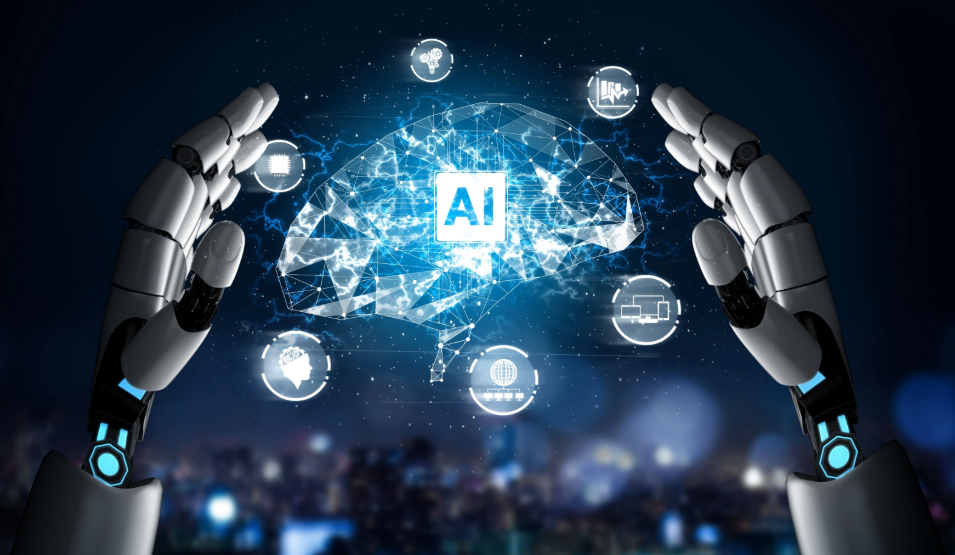Artificial Intelligence is no longer just a concept from science fiction. It has transitioned into an integral part of our daily lives, quietly transforming the world around us. From virtual assistants that schedule your appointments to advanced algorithms predicting weather patterns, AI is woven into the fabric of modern society.
But how did we get here? The journey of artificial intelligence spans decades and reflects human ingenuity and ambition. As we dive deeper into its history and evolution, it becomes clear that AI isn’t merely a trend—it’s a powerful force shaping industries, economies, and even personal interactions.
Join us as we explore the remarkable current applications of artificial intelligence and consider its future impact on our world. Let’s uncover how this technology will redefine possibilities in ways we’ve only begun to imagine.
Current Applications of AI
Artificial Intelligence is transforming countless sectors right now. From healthcare to finance, its impact is profound and far-reaching.
In medicine, AI assists doctors in diagnosing diseases more accurately. Machine learning algorithms analyze medical images quickly, helping identify conditions that may go unnoticed by the human eye.
In retail, personalized shopping experiences are becoming standard. Algorithms track user behavior to recommend products tailored specifically for individual tastes.
Financial institutions leverage AI for fraud detection. By analyzing transaction patterns in real-time, they can flag suspicious activities faster than ever before.
Even transportation sees a revolution with self-driving cars powered by advanced AI systems that navigate complex environments safely. This innovation promises greater efficiency and reduced traffic accidents over time.
Impact of AI on Industries
Artificial Intelligence is transforming industries at an unprecedented pace. In healthcare, it enhances diagnostics and personalizes treatments, leading to better patient outcomes. Machine learning algorithms analyze vast datasets, identifying patterns that humans might miss.
In manufacturing, AI streamlines production lines through predictive maintenance and automation. This boosts efficiency while reducing costs. Robotics powered by AI can work tirelessly alongside human workers, increasing productivity in various sectors.
The finance industry also feels the impact of artificial intelligence. Fraud detection systems use AI to recognize suspicious transactions in real-time, safeguarding assets more effectively than traditional methods.
Retailers leverage AI for personalized shopping experiences. By analyzing consumer behavior data, they tailor recommendations and improve customer satisfaction significantly.
Transportation is not left behind either; self-driving vehicles are on the rise thanks to advancements in AI technologies, promising safer roads ahead and reshaping logistics entirely.
Ethical Concerns Surrounding AI
As artificial intelligence continues to evolve, ethical concerns are becoming increasingly prominent. One major issue is bias in AI algorithms. These biases can lead to unfair treatment of individuals based on race, gender, or socioeconomic status.
With the rise of surveillance technologies powered by AI, personal data is more vulnerable than ever. The line between security and invasion of privacy has blurred significantly.
Accountability also remains a hot topic. When an AI system makes a mistake—like misidentifying someone as a criminal—who takes responsibility? This question becomes crucial as reliance on these systems grows.
These ethical dilemmas demand careful consideration as we advance further into this rapidly changing landscape shaped by artificial intelligence.
Advancements in AI Technology
Recent advancements in artificial intelligence are transforming how we interact with technology. Machine learning algorithms have become more sophisticated, enabling computers to learn from vast datasets and improve their performance over time.
Natural language processing has reached new heights. AI systems can now understand context, tone, and sentiment much better than before. This allows for more effective communication between humans and machines.
Robotics is also evolving rapidly. Smart robots equipped with AI capabilities can perform complex tasks in various environments—from manufacturing floors to healthcare facilities.
Computer vision is another area seeing remarkable growth. AI systems can accurately analyze images and videos, recognizing patterns that were previously undetectable.
These innovations pave the way for exciting applications across industries, such as personalized medicine, autonomous vehicles, and advanced customer service solutions. Each step forward brings us closer to realizing the full potential of artificial intelligence in everyday life.
Future Possibilities with AI
The future of Artificial Intelligence holds immense promise. Imagine smart cities that adapt in real-time to traffic patterns, enhancing mobility and reducing congestion.
Healthcare could experience revolutionary changes too. AI might analyze vast datasets, enabling early diagnosis of diseases or personalized treatment plans tailored to individual genetic makeups.
Education is also on the brink of transformation. Intelligent tutoring systems may provide customized learning experiences based on a student’s unique strengths and weaknesses.
Conclusion: Embracing the Potential of AI
The landscape of artificial intelligence is evolving rapidly. As we stand on the brink of a new era, it’s essential to recognize the potential that AI holds for our future. Each advancement brings us closer to smarter technologies that can enhance our daily lives.
Embracing this technology means understanding both its benefits and challenges. It requires an open dialogue about ethics and responsibility in AI development. By fostering collaboration between industries, researchers, and policymakers, we can create a framework that maximizes the positive impact of artificial intelligence.
As businesses adapt to these changes, they will discover innovative ways to integrate AI into their operations. This integration promises increased efficiency and improved customer experiences across various sectors.
Looking ahead, it’s clear that artificial intelligence will play a pivotal role in shaping our world—transforming how we work, communicate, and live. The opportunities are vast; with careful navigation through its complexities, we can harness AI’s full potential for better outcomes for society as a whole.

